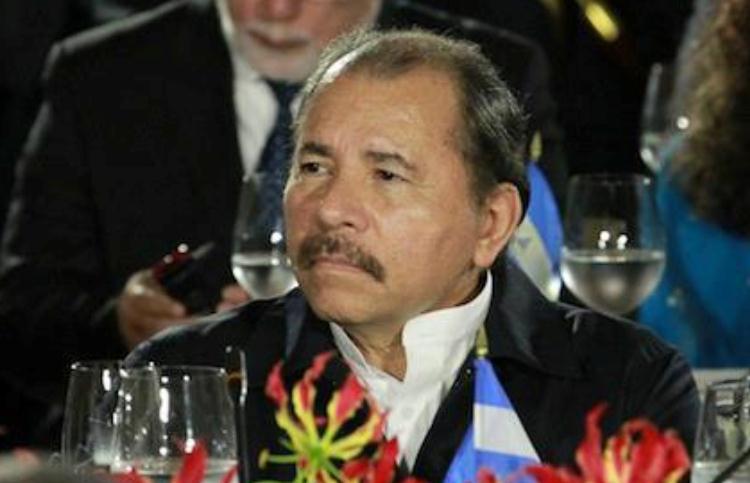Eduardo González
The Minister of Foreign Affairs, José Manuel Albares, will participate today in Luxembourg in an EU Foreign Affairs Council (FAC) that has included the situation in Nicaragua on its agenda, just a week after the Council extended the sanctions on the regime by one year.
The Council will discuss today in Luxembourg a wide range of issues, such as the EU’s position in the Persian Gulf region following the recent visit to Qatar, UAE and Saudi Arabia by High Representative Josep Borrell; the EU’s relations with the Eastern Partnership or various topical issues, such as Afghanistan, Tunisia, the Western Balkans, Climate Diplomacy or Turkey’s attempts to reopen the Varosha resort in the self-proclaimed Republic of Northern Cyprus. In addition, the Council is expected to adopt conclusions on the military operation in Bosnia and Herzegovina (EUFOR ALTHEA).
Foreign ministers will also exchange views over lunch on the situation in Ethiopia and Nicaragua. The discussion on Ethiopia will focus on humanitarian aspects in the light of recent developments in the country and in the Tigray region. As for the discussion on Nicaragua, ministers will be invited to consider the need to adapt EU policies in view of the upcoming general elections, which will take place in the country on November 7, 2021, and to address how best to support the population.
This discussion comes a week after the EU Council extended for one year, until October 15, 2022, the targeted restrictive measures imposed on Nicaragua. The sanctions regime was first introduced in October 2019 to address the deteriorating political and social situation in the country and targets individuals and entities responsible for human rights violations or abuses, the repression of civil society and democratic opposition in Nicaragua, or the deterioration of democracy and the rule of law. The sanctions currently apply to 14 individuals, including Vice President and First Lady Rosario Murillo, and were designed not to harm the population or the economy of that country.
Last June 10, Josep Borrell called for the restoration of inclusive dialogue and democracy as the only way out of the political, economic and social crisis in Nicaragua and called on the Nicaraguan authorities to put an end to the repression and to fully guarantee respect for human rights and civil and political rights in the country. “Instead, the Nicaraguan government has intensified repression” and “eliminated the possibility of any serious electoral competition at the polls on November 7, 2021,” the Council denounced last Monday to justify the new sanctions.
Spain against Ortega
As far as Spain is concerned, foreign sources could not confirm to The Diplomat whether Albares plans to bring to the FAC any concrete proposal on Nicaragua. In any case, the Spanish government has repeatedly denounced the situation in the Central American country over the last few months, with the consequent deterioration of diplomatic relations between Madrid and Managua.
Last June, the then Minister of Foreign Affairs, Arancha González Laya, and her counterparts from Costa Rica, Belize, Guatemala, Panama and the Dominican Republic demanded in a joint letter the “immediate release” of the Nicaraguan opposition leaders detained by Daniel Ortega’s regime. Likewise, the Spanish government expressed in August, in a communiqué, its conviction that Nicaragua’s electoral process will not offer a result with guarantees and credibility and urged the regime to put an end to the repression against the opposition and the media.
A few days later, Albares recalled the Spanish ambassador in Managua, María del Mar Fernández-Palacios, for consultations, following a note issued by the Nicaraguan government accusing Spain of “meddling, interference and intervention” in Nicaragua’s internal affairs. In its note, the Managua regime also accused the Spanish Executive of failing to comply “continuously with the rights of its peoples to autonomy or autonomous processes of independence” and denounced the “crimes against humanity, never investigated or judged by the GAL in the 80’s” (those responsible for the Ministry of the Interior involved), José Barrionuevo, Rafael Vera or Julen Elgorriaga, were prosecuted and convicted, although later pardoned, and the courts never qualified the facts as crimes against humanity) and the “ferocious and brutal colonial and neocolonial history” of Spain.
In mid-September, the Spanish government expressed its solidarity with Nicaraguan writer Sergio Ramirez and rejected the “unfounded accusations” of the Nicaraguan Prosecutor’s Office, which issued an arrest warrant for him. Around the same time, Albares himself assured Ramirez in person, during an event at the Instituto Cervantes, that Spain “will always” be his country because “all those who are in favor of democracy have a place in Spain”.







